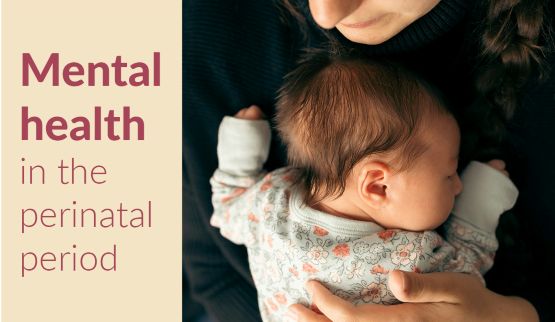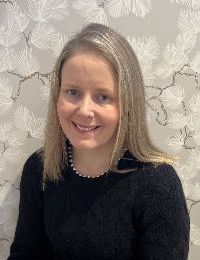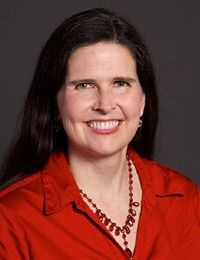
The SELF framework offers a simple way of weaving together self-care, compassion, and emotion regulation to help parents find steadier ground in early parenthood. Self-care is often reduced to superficial acts that feel out of reach for many new parents. At the same time, the clinical literature highlights emotion regulation and self-compassion as central to resilience in the perinatal period. This presentation introduces the SELF framework, a practical, compassion-focused model that integrates emotion regulation strategies into everyday self-care in ways that are accessible, realistic, and meaningful for parents. Participants will explore how each domain of the SELF framework (Soothing, Energising, Laughter/Learning, and Family/Friends) connects with the science of emotion regulation, and how to translate these concepts into concrete, doable practices with parents. By the end of the session, participants will leave with a practical, integrative model that links self-care, emotion regulation, and compassion into a cohesive approach they can draw on in their work with parents.
Behind the celebrations of birth lies a less visible reality. For many parents, the birth of an infant can stir an unexpected crisis as unresolved relational trauma is activated. This presentation will help participants recognise the symptomatology of complex trauma and its impact on adult mental health and the emerging parent–infant relationship. It will describe qualities of relationship-focused care and how it can support the caregiver to mentalize attachment relationships, past and present, and begin to repair. As well as provide everyday ways to include the infant in perinatal service delivery.
After watching this presentation, participants will be able to:
1. Recognise the signs of unresolved trauma and explain its impact on adult mental health and infant wellbeing.
2. Apply a relationship-focused approach to perinatal service delivery.
3. Incorporate the infant’s needs and perspective in an adult-centric service.
The transition to motherhood often brings many unexpected challenges, that parents said they were unaware of and unprepared for. Drawing on extensive research with hopeful, expectant and new parents, Nicole will highlight the key challenges faced by parents and demonstrate how this has informed the development of national awareness campaigns and the work of COPE more broadly. This will highlight the critical importance of awareness, education, prevention and early detection of perinatal mental health conditions and showcase the latest developments in innovation to support COPE’s mission to reduce the personal, social and economic costs of untreated mental health conditions at this vulnerable life stage.
Perinatal mental health is often framed through the lens of depression and anxiety, but many parents experience psychological distress that does not fit neatly into these diagnostic categories. This presentation explores the nuanced, under-recognised presentations that arise during pregnancy and the postpartum period — including perinatal obsessive-compulsive disorder, dissociation, postnatal rage, and dysphoric milk ejection reflex (D-MER). Through a series of case studies, we will examine the lived experience of parents navigating these challenges, the clinical pitfalls of under- or misdiagnosis, and the therapeutic approaches that prioritise safety, validation, and collaborative care. Attendees will leave with a renewed capacity to approach perinatal mental health with curiosity, compassion, and clinical confidence.
Mother-infant sleep is surprisingly complex, yet practitioners issue advice that does not consider these complexities. When infants do not sleep, they often cry, which is stressful for mothers and can lead to depression. Simply telling mothers to supplement or avoid nighttime breastfeeding increases mothers’ fatigue and can harm their mental health. Infant sleep is influenced by their sex, temperament, and gestational age. Mothers’ depression, anxiety, or PTSD during pregnancy also influences their infants’ sleep. However, exclusive breastfeeding ameliorates many of these difficulties because it downregulates the hyperactive stress response. It also protects mothers’ mental health because it leads to better sleep. This presentation also offers suggestions for how to help mothers with extreme fatigue.
Perinatal OCD (Obsessive Compulsive Disorder) is probably the most misunderstood and undiagnosed of all perinatal mental health disorders. It is much more than fearing your hands are dirty and consistently washing them. In this presentation we will get to learn about the intrusive thoughts many parents have, what is perinatal OCD, what are the symptoms of perinatal OCD, and what is the gold standard treatment.
After watching this presentation, participants will be able to:
The perinatal period is a time of significant emotional and relational transformation that directly influences the mental health and wellbeing of parents and their families. Maternal, healthcare and other perinatal professionals play a vital role in supporting this transition but often encounter challenges addressing the relational complexities alongside clinical care. This presentation introduces Becoming Us, a relationship-based perinatal care framework designed to equip maternal and healthcare providers with practical strategies to support the mental, emotional, and relational wellbeing of expecting and new parents. Participants will learn how to engage fathers and partners, incorporate trauma-informed and systemic approaches, and apply evidence-based tools. Attendees will leave with actionable insights to enhance family-centred care, strengthen parental relationships, and improve outcomes for all family members throughout the perinatal journey.
If you have worked with mothers for more than a few weeks, you have encountered a mother with mental illness. You may not have recognized the symptoms while talking with your patient. Or, you may get a phone call from a mother or a medical professional asking if a certain psychiatric medication is “safe” during lactation. Perinatal mood and anxiety disorders (PMAD) include a spectrum of common mental health disorders: postpartum depression, perinatal panic disorder, perinatal obsessive-compulsive disorder, postpartum posttraumatic stress disorder, postpartum bipolar disorder (which can include depression, hypomania and mania) and postpartum psychosis. These disorders often ruin enjoyment of the postpartum experience and bonding with the baby. Perinatal bipolar disorder and postpartum psychosis are particularly dangerous due to severe depression, and reckless or bizarre behavior that can endanger mother and baby. Medicating the lactating mother is a careful balancing act between the health and safety of the mother and the health and safety of the baby. But failing to medicate a mother with PMAD can lead to misery, dysfunction, poor infant outcomes and in the worst situations, injury and death. This presentation will give an overview of the different classes of antidepressants, antianxiety medications, antipsychotics, and mood stabilizers commonly used in breastfeeding mothers. Electroconvulsive therapy and transcranial magnetic stimulation will also be discussed as non-pharmacologic treatments.

Kathleen Kendall-Tackett
Dr Kendall-Tackett is a health psychologist and International Board-Certified Lactation Consultant, and the director of Praeclarus Press, a small press specializing in women's health. For the past 10 years, Dr Kendall-Tackett has been editor-in-chief of Psychological Trauma. She is fellow of the American Psychological Association in Health and Trauma Psychology and past president of the APA Division of Trauma Psychology. Dr Kendall-Tackett specializes in women's-health research including breastfeeding, depression, trauma, and health psychology, and has won many awards for her work including the 2019 President’s Award for Outstanding Contributions to the Field of Trauma Psychology from the American Psychological Association, and is a member of Sigma Xi, the Scientific Research Honor Society.
Dr. Kendall-Tackett has authored more than 500 articles or chapters and is author or editor of 42 books. Her most recent books include Breastfeeding Doesn’t Need to Suck (2022), Women’s Mental Health Across the Lifespan (2017), and most recently, Depression in New Mothers, 4th Ed - Vols I & II (2023, 2024).

Elly Taylor
Elly Taylor is a relationship educator, author, and founder of Becoming Us. For over two decades, she’s been passionate about helping parents-to-be and new parents navigate the big changes that come with growing a family. She’s shared her work with perinatal professionals here in Australia and overseas, spoken at national and international conferences, and contributed to research projects with universities including Newcastle, Monash, the Australian Catholic University, and Columbia in New York. In 2021, Elly worked with NSW Health to create relationship-based antenatal education for first-time parents birthing at two hospitals in Southern Sydney. At the heart of Elly’s work is a simple belief: when we prepare and support couples for the transition to parenthood, we nurture not only their relationship, but the wellbeing of their whole family. Elly lives in Sydney with her firefighter husband and their three kidults.

Melody Jackson
Dr Melody Jackson (she/her) is a GP, International Board Certified Lactation Consultant (IBCLC) and an Adjunct Senior Clinical Lecturer (UNDS). She has completed a Master of Public Health, Diplomas of Child Health and Cognitive Behavioural Therapy and a Postgraduate Certificate in Traumatic Stress Studies. This unique skill set drives her passion and expertise in the areas of breastfeeding medicine, maternal mental health and whole family wellbeing. She is the clinical director of Breastfeeding & Beyond in Bella Vista, Sydney, and also serves on the boards of the Academy of Breastfeeding Medicine (ABM) and the Breastfeeding Medicine Network of Australia and New Zealand (BMNANZ).

Marie Zahorick
Marie Zahorick became a La Leche League Leader in 1999 and an IBCLC in 2005. After several years of working as a hospital-based bilingual IBCLC, she attended nursing school and eventually became a board-certified Family Nurse Practitioner. In the meantime, she continued working as a hospital-based lactation consultant doing inpatient, outpatient, and Level III NICU lactation support at a variety of hospitals and with a wide variety of patient populations. After graduate school, Marie was recruited to work as a nurse practitioner in psychiatry. She was fellowship-trained to manage patients in the acute inpatient setting, partial hospitalization, outpatient office, and OB patients in the general hospital setting. She specializes in women’s psychiatry, especially medical management of women who are pregnant or lactating. Her expertise includes psychopharmacology in pregnant and lactating women as well as general psychopharmacology. She is experienced at diagnosing and treating mental illnesses such as bipolar disorder, perinatal/postpartum mood and anxiety disorders, postpartum psychosis, obsessive-compulsive disorder, premenstrual and perimenopausal mood disorders, and personality disorders. She lives in the Chicago area with her husband and they have three adult children.

Nicole Highet
Dr Nicole Highet is the founder and executive director of COPE: Centre of Perinatal Excellence. Nicole is the chairperson of the Australian Perinatal Mental Health Guideline, and leads COPE as the peak body in perinatal mental health in Australia. COPE is dedicated to the development of national awareness and education campaigns, and the prevention and early detection of perinatal mental health through the iCOPE digital screening program. Information and timely referral is supported through equipping health professionals with skills and confidence to identify, respond and refer via our national online COPE directory. With a background in clinical psychology, health promotion and research, Nicole has dedicated her life work to reducing the impacts of perinatal mental health in hopeful, expectant and new parents, and the community.

Amanda Connell
Amanda Connell is a clinical psychologist and board-approved supervisor working at the intersection of infant feeding and perinatal and infant mental health. She is the founder of Spilt Milk Psychology and is known for her warm, engaging approach to complex clinical issues. Grounded in Compassion-Focused Therapy, Amanda’s work is shaped by inclusive, trauma-informed, and relational principles. She aims to support clinicians to integrate theory into practice so they can approach their work with confidence, clarity, and compassion.

Liora Noy
With nearly two decades of experience supporting families, Liora brings a rich and diverse background to her work as a registered nurse and international board certified lactation consultant (IBCLC). She holds a Graduate Diploma in Psychology, a Master’s in Public Health, and has completed extensive training in women’s psychotherapy, Cognitive Behavioural Therapy (CBT), and Acceptance and Commitment Therapy (ACT). Since 2006, Liora has worked across a wide range of settings, including hospital obstetrics, community well-child nursing, lactation support in both hospitals and clinics, and as an educator in antenatal, postnatal, and parenting programs such as Circle of Security. Most recently, she has focused her practice on providing therapeutic support for parents experiencing perinatal mental health challenges, including postnatal depression. For five years, Liora served as Educator for Perinatal Anxiety and Depression Aotearoa (PADA NZ), where she delivered training and facilitated workshops for healthcare professionals on topics such as perinatal anxiety and depression, traumatic birth experiences, perinatal OCD, and pregnancy after loss. Originally from Mexico, Liora has also lived in California, Hawaii, and Italy before settling in New Zealand in 2011. She is fluent in English, Spanish, Hebrew, and Italian.

Sharon Cooke
Sharon Cooke originally trained as a midwife and child health nurse. In her first half of career, she worked in early parenting education, with a special focus on children’s sleep and behaviour. However, when it came to family trauma and loss—struggles that most needed compassionate support—her professional toolkit felt empty. This sparked a curiosity and deep dive into attachment theory, where Sharon completed a Master of Perinatal and Infant Mental Health and UK-based training in Psychodynamic Parent-Infant Psychotherapy. Drawing on attachment science, mentalizing theory and neurobiology, she went on to develop Mother-Baby Nurture—a reflective group for mothers and infants that addresses the transmission of relational trauma. Today, Sharon trains and supervises a multidisciplinary team of clinicians delivering Mother-Baby Nurture in 14 communities across Western Australia. This government funded program supports vulnerable families, helping them start life together on strong and nurturing foundations. Sharon is captivated by the relational dance between the parent and infant, and the way past patterns of relating within family are passed forward yet rarely recognised or talked about. Her preferred place of work is beside the parent-infant dyad as they begin to notice and gradually find their rhythm.